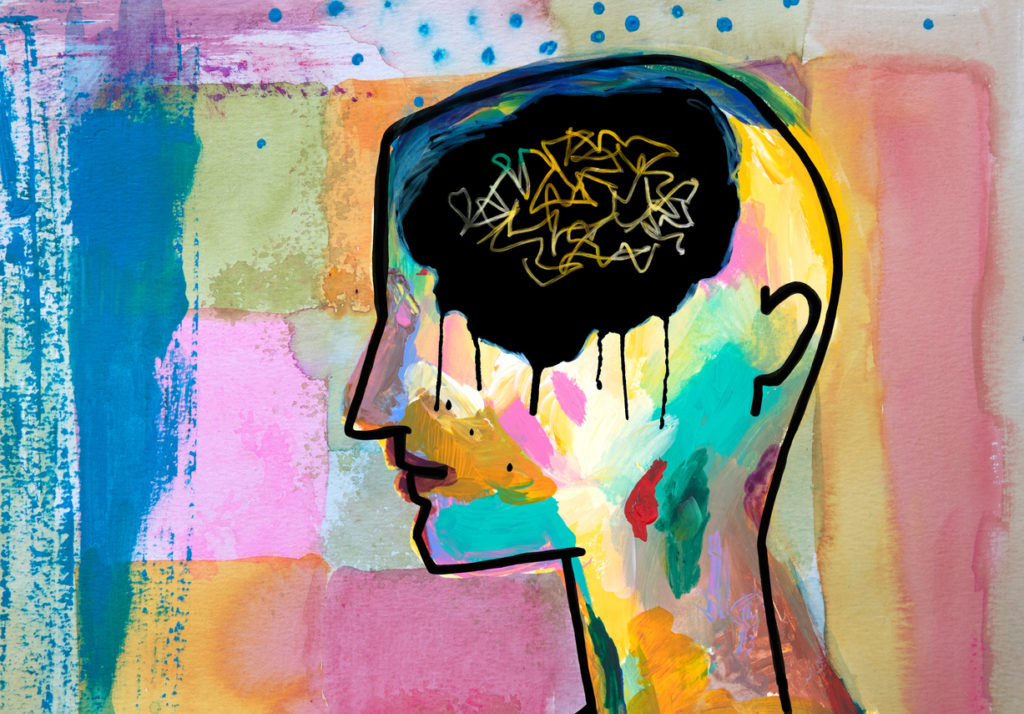Any new diagnosis can have an impact on family and work life. After experiencing symptoms that developed over 4 years, Geoff finally received a diagnosis of young onset Parkinson’s disease. He shares with us his experience, the impact on his family and work life. Geoff provides his advice and top tips for others in a similar situation and advice for carers.
Impact on family life
For the 4 years prior to being diagnosed Geoff kept the issues and problems he was having to himself and tried to hide them as much as possible. “I was confused and worried enough. I was coping and getting by so I didn’t see what it would achieve if I shared the problem, it would only cause more worry, especially with no indication in the short term of what the problem might even be.”
Geoff only told his wife and daughters what he was experiencing days before his diagnosis of Parkinson’s, so he suffered alone for nearly 4 years.
“As you would expect they had very mixed feelings; an understanding of why I chose to keep it from them, but also disappointment and anger that I felt I needed to take that path and of course relief for what it might have been.
“If I could go back in time and even knowing what I know now would I keep it a secret again? Yep. It’s how I function, it’s how I process things, that’s just me. I need to feel that I have at least some level of control of the situation, however small that might be. I think it is a bit protective of both myself and the family. I want to have some answers to share as well as telling them something’s not right.”
“There is no right or wrong way to tell your family and loved ones about Parkinson’s. You need to do what is best for you. Don’t be swayed by others. In the times of uncertainty I think you need to be a bit selfish you need to do what you feel is the right thing to get you through. When you do decide to involve others you may feel the need to apologise but never feel that you need to be sorry, you did what was right for you at that time. Even though you might not involve them when they think you should have, it’s because you cared. You will decide who, when and how you share and let people in and it will be different for all of us.”
The response from Geoff’s supportive family was to “take action, who do we contact for help, treatment, doctors, assistance. Living with Parkinson’s was no longer just my concern, it was the family’s and in the month ahead they would be the ones that helped me come to terms with what laid ahead. The ultimate driver for living the best life I can is my family and being able to share my best times with them. Parkinson’s highlighted that the people we can sometimes take for granted are actually my number one priority, the ones I love and ones I love coming home to every night.”
Geoff’s Parkinson’s has now been accepted as just a part of family life and they have been very supportive, “we know it’s there but we just get on with life, accept the challenges as they arise but don’t dwell on them. For the family, my challenges are now ‘our’ challenges and we move ahead together. Parkinson’s also provides a bit of a giggle for the family as they guess how many laps dad will do around the house until he remembers his ‘new hiding place’ for his car keys.”
Get on top of your general health
Find and instantly book affordable GPs within Australia
Impact on work life
Geoff currently works full-time for an engineering consultancy as a Draftsperson which involves a lot of time in front of a computer all day. He says “the main impact Parkinson’s presents is using the keyboard. I can’t speed type anymore; the words will be jumbled and garbage. Even as a two finger typist there is still a delay in the signal from my brain to my left hand so there is a real risk that even though the word has the correct letters they can be jumbled up, so spell-check is my best friend along with the need to make sure I review my typed words often.”
Taking regular breaks have also become important, “I can only stay seated for a couple of hours at most before my legs start to stiffen up along with joint pain. So a few more trips to the lunch room which use to mean tea and biscuits but is now water and fruit and the occasional biscuit.”
Facing challenges and finding support
Some of the challenges that Geoff has had to face include “forgetfulness; forgetting where things are and having to search around for where you left something probably only minutes earlier. Forgetting people’s names especially when you have known them for a long time and especially when they are good friends or family which can be embarrassing.”
Each day is different and Geoff says “on bad days, even if it only lasts for a moment, suddenly you don’t know where you are for those few seconds you can feel real panic.” Despite this Geoff does not need help with any specific tasks and “the family is in tune with when specific symptoms are causing me problems.”
Geoff’s advice for well-meaning people trying to help with a specific task is to not “assume that I can’t do it because I have Parkinson’s, they might think they are doing the right thing, but I don’t need people to feel sorry for me and take over. Instead, just be there when I ask for help.”
Advice for others with Parkinson’s disease and their carers
Remembering to take medication regularly is a challenge for many people. Geoff says “I’m not a big fan of taking long term medication. Remembering to take the medication is my main problem.” He has taken control of this by “setting reminders on my phone and after the night time reminder I leave the morning medication out with my cycling gear.”
Geoff also strongly recommends “finding a support group as soon as possible. You might need to try a number of them before you find the one that’s right for you, that’s what’s important here … what’s right for you.” Geoff has found “Parkinson’s Victoria has been great and helped to open up contact for information and involvement through Florey Institute, St Vincent’s Hospital, Melbourne and Monash Universities.” Particularly in the early days of being diagnosed, Geoff said he benefited from joining the “Parkinson’s Victoria Young Onset Group (or Y@P for short) – the care, help and just plain welcoming of the people in the group of not just me, but also my family as carers was something we weren’t expecting and continues to be part of what encourages others to join.”
Geoff also recommends thinking outside the box when it comes to living with Parkinson’s, “I’m about to start building models out of Lego blocks to try and help the hand clumsiness and finger dexterity. The look on the salesperson’s face was priceless when they asked ‘is that for your grandson?’ and my reply was “Nope it’s for me’, now that was someone dealing with something outside their comfort zone!”
Carers play an important and supportive role. Geoff’s advice to carers is “never forget if you think the person you are caring for is your number one, then that makes you number 1.5. Support groups understand that carers are as important as the person living with the disease. Join that support group, be prepared to share how you are feeling and accept you don’t have to do it all. It’s a tough job, so let others in to support YOU and realise it’s okay to do that.”
More information
 |
Read more about Geoff’s experience with this disease, on Parkinson’s Disease: Geoff shares his journey and advice for others. |
All content and media on the HealthEngine Blog is created and published online for informational purposes only. It is not intended to be a substitute for professional medical advice and should not be relied on as health or personal advice. Always seek the guidance of your doctor or other qualified health professional with any questions you may have regarding your health or a medical condition. Never disregard the advice of a medical professional, or delay in seeking it because of something you have read on this Website. If you think you may have a medical emergency, call your doctor, go to the nearest hospital emergency department, or call the emergency services immediately.







